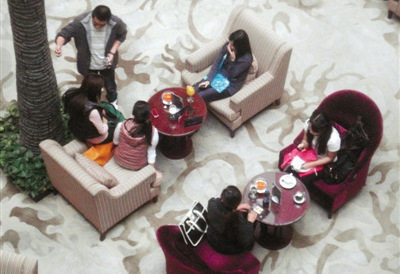(Ecsn.cn) – Though China's Ministry of Health has made it illegal to commercialize ovum donation since 2006, the black market for human eggs is still booming in Beijing, with profit-hungry brokers recklessly manipulating the fertility trade.
As fertility assistance has become big business, agents here have formed a perfect industry chain covering medical examinations, egg retrieval, surrogate births and birth certificate services.
Donors vary according to customer requirements, but fertile eggs from the students of top schools such as Peking University and Tsinghua University are always the most expensive – particularly if they bear certain physical features.
Despite the government ban – or perhaps because of it – slack management and an absence of government supervision have resulted in a black market filled with irregularities and safety concerns.
Big profits, no contracts
A woman waits in a cafe, dipping a spoon into her latte and giving it a slow stir. This afternoon she will meet ten strangers that she met on the Internet, all of them university students in Beijing.
After the girls arrive one by one, she asks them about their personal information such as height, blood type, family history and hobbies. As they answer the questions, clients sit at a distance in the same cafe, looking the girls up and down with fastidious eyes.
According to the Beijing News, this is a typical scene during the selection of egg donors in the nation's capital city. Because finding a donor is fraught with difficulties, agents have been known to infiltrate universities and post information on campus bulletin board systems (BBS) via the Internet. Sometimes, students who are in urgent need of money will even announce that they are willing to offer their fertile eggs for a price.
Recently on Oiegg.com, the campus BBS of Beijing Normal University, there were still messages concerning the black market egg trade.
On August 3, 2011, someone nicknamed Momo posted a demand on Renren.com, a Chinese social networking site popular with university students, looking for a female student at Peking University or Tsinghua University who was willing to donate her egg for 30,000 yuan ($4,638).
However, when the Beijing News reporter contacted Momo, he also stipulated that the client was looking for a student taller than 1.63 meters, with double eyelids and a pointed chin.
Momo further revealed that the reward would in fact be much less than 30,000 yuan, and that there would be no signed contract due to the illegality of the transaction. The selected donor would only get about 5,000 yuan ($773) for her egg, after they had deducted costs for the medical examination and commission, he added.


















